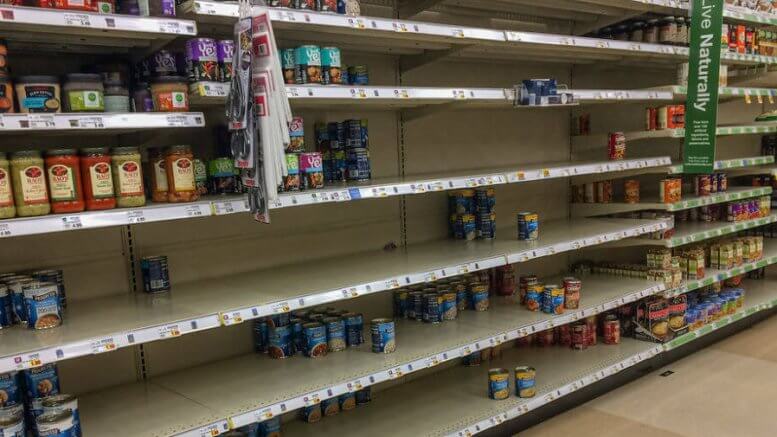What’s in your pantry and how many days would your food supply last?
Alex Newman interviews Center for Security Policy’s Chief, Lt Col Tommy Waller.
American’s go to the grocery store more than once a week and have very little or no food storage. They are set up for disaster should the food supply become disrupted or travel to the grocery store become unsafe or not possible.
State governments, local communities and individual Americans and families should start preparing now as growing threats including food security, Communist China, and even a potential EMP attack grow on the horizon, explained Center for Security Policy Chief Lt. Col. Tommy Waller (ret.) on this episode of Conversations That Matter with Alex Newman.
The federal government is failing to take adequate measures, and so others must step into the gap and fill the void, added Waller, who spent two decades in the U.S. Marines. Among other concerns, Waller released a recent white paper on the threats to U.S. food security, and said the risks—some of them from government itself—are growing amid a massive lack of preparedness by the public and government. Meanwhile, the danger from the Chinese Communist Party (CCP) is growing larger, and in fact the CCP is already waging “unrestricted warfare” against the United States, Waller said.
Individual Families can Prepare Right Now and this Costs Nothing
Food security is national security. The federal government does have a role. Yet food security is one of the few national security issues in which each citizen can take measures to look out for oneself, one’s family, and one’s community. It’s an issue that can elevate existing communities and create new ones without relying on centralized bureaucracies.
This report inaugurates a new Center for Security Policy program to promote awareness and provide solutions for the multiplying threats to America’s food supply. It seeks to kick off a national discussion about food security, the role of the federal government, the role of states and communities, and the role of the individual. Even more than discussing the problem, the Center’s program is designed to help empower citizens to address food security for themselves. This report provides a broad overview of the problem and an initial list of recommendations at the federal, state and local, and individual levels. Over time and through collaboration, we intend to grow that list and encourage action at all levels to enhance our nation’s food security.”

